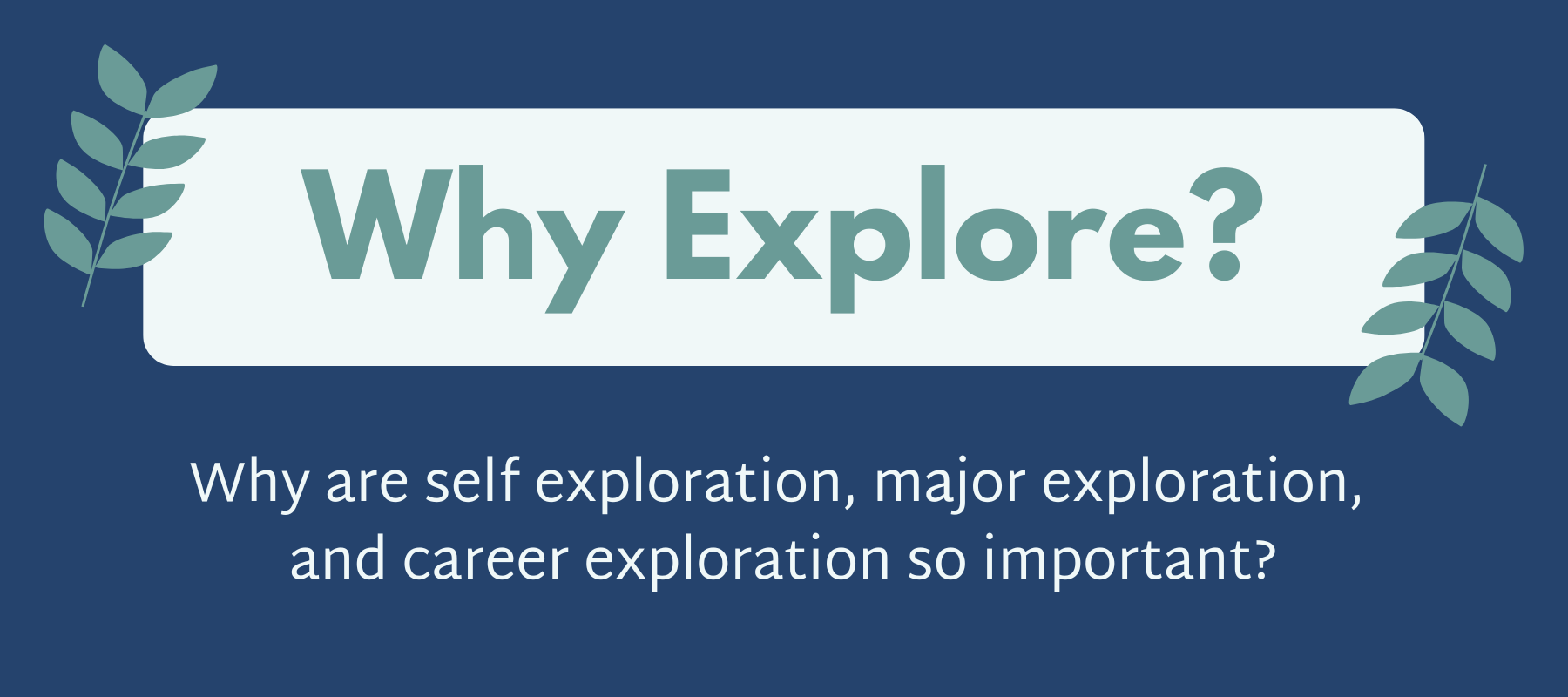
We aim to help students develop an open mindset that can encourage their exploratory journey, provide them with the tools and resources to help with exploration, and make informed decisions when it comes to selecting a major and preparing for career opportunities.
We feel all students can benefit from taking time to explore their options, whether your uncomfortably undecided, comfortably declared, or somewhere in between. College is an investment, and you owe it to yourself to gather as much accurate and reliable information as possible so you can make a confident and informed decision. All of this starts with shifting a mindset--changing the way out students view the world; finding value in process of exploring, and redefining a lot of the misinformation you've been exposed to about majors and careers. Let's go ahead and address some of those myths and misconceptions with that hope that it will encourage you to explore your options in a more productive and meaningful way.

Employers Hiring “Unrelated” Majors
According to the NACE 2025 Career Outlooks, 75% of employers are willing to hire college graduates in "unrelated" majors. 51% hire majors exclusive to their industry and majors that fall outside of their industry and 24% hire ANY major regardless of relation to industry. Only 23% of employers say that are hiring JUST in majors exclusive to their industries.
Skills-Based Hiring
According to the NACE 2025 Spring Report, 64% of respondents use skills-based hiring practices which is, "a framework that focuses on a job candidate’s specific skills and competencies for the job, focusing on the candidate’s abilities" as opposed to traditional practices that focus on "the candidate's educational attainment, experience, and background.1" This means there is more of an emphasis on developing proficient career competencies.


Other Factors that Contribute to Getting Hired
According to the NACE 2025 Spring Update, outside of an academic major and regardless of GPA, the top additional factors considered by employers include: completing an internship with your industry, broad industry experience, completing an internship within the organization, and demonstrated proficiencies in competencies. These were indicated by more than 70% of employers.
Grad School: MBA Programs
Most graduate programs will review candidates regardless of their undergraduate major and instead look at things like pre-requisites, GPA, letters of recommendation, and experiences. The Wharton School at University of Pennsylvania is ranked the best in the country for MBA programs. The class of 2026 enrolled 866 students. Of these, the highest represented major group was Humanities at 36% followed by Business and STEM (both 32%).2


Medical School
Looking at the data from the Association of American Medical Colleges, Math/Stats, Humanities, and Physical Sciences majors all had higher matriculation rates to Medical School in 2024-2025 then Biological Sciences. In addition, those Humanities majors that matriculated had higher on average MCAT scores than Biological Sciences.3 Harvard Medical School states: "No preference is given to applicants who have majored in science...Students are urged to strive not for specialized training but for a balanced, liberal education.4"



